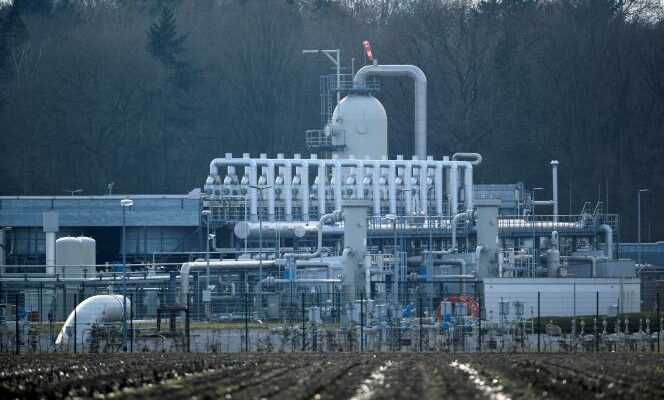Europe holds its breath, will the Kremlin cut off the gas supply after the deadline set for March 31 by the Russian head of state, Vladimir Putin, to pay for the precious fuel in rubles? Several European Union (EU) countries are already anticipating serious shortages. On Wednesday March 30, Austria and Germany launched their emergency plan. For Vienna, the idea is to “guarantee a rapid reaction” in the event of a stoppage of deliveries, according to the Chancellor, Karl Nehammer. In Berlin, the first level of the emergency plan that the country has just activated provides for the establishment of a crisis unit. Around the table: members of the German Ministry of Economics, representatives of the regulatory authority, transmission system operators, as well as the private sector, in order to coordinate supplies and reserves.
In the immediate future, however, Europe’s largest economy has not noticed any supply problems, the German government is told. But the dependence of the Old Continent on Russian deliveries is worrying: around 40% of its gas consumption comes from Russian fields, a percentage which rises to 55% for Germany.
If Europe hopes to free itself from Russian hydrocarbons by 2027, it brings, for the time being, a considerable income to Russia. Since February 24, the EU has already paid at least 14 billion euros for gas and 7 billion for Russian oil, according to the count of a think tank, the Center for Research on Energy and Clean Air, in March, 31st.
What about the currency of payment?
Hence the importance of the following question, and the extent of the current vagueness: will importing companies be able, as they see fit, to continue paying their current contracts in euros or dollars? Or will they now be forced to pay in Russian currency, as Mr. Putin demands? Compulsory payment in rubles would apply to a list of forty-eight countries, including those in the EU. Forty-eight countries considered by the Kremlin as hostile, that is to say opposed to Russia’s war in Ukraine.
This counter-sanction would respond to the freezing of Russian assets in Europe, the United States or the United Kingdom. But its application, aimed at supporting the ruble, remains unclear. After announcing the principle, on March 23, Vladimir Putin instructed the Russian central bank and the energy company Gazprom to study the terms of such a measure. The report was due Thursday, March 31.
You have 71.67% of this article left to read. The following is for subscribers only.
